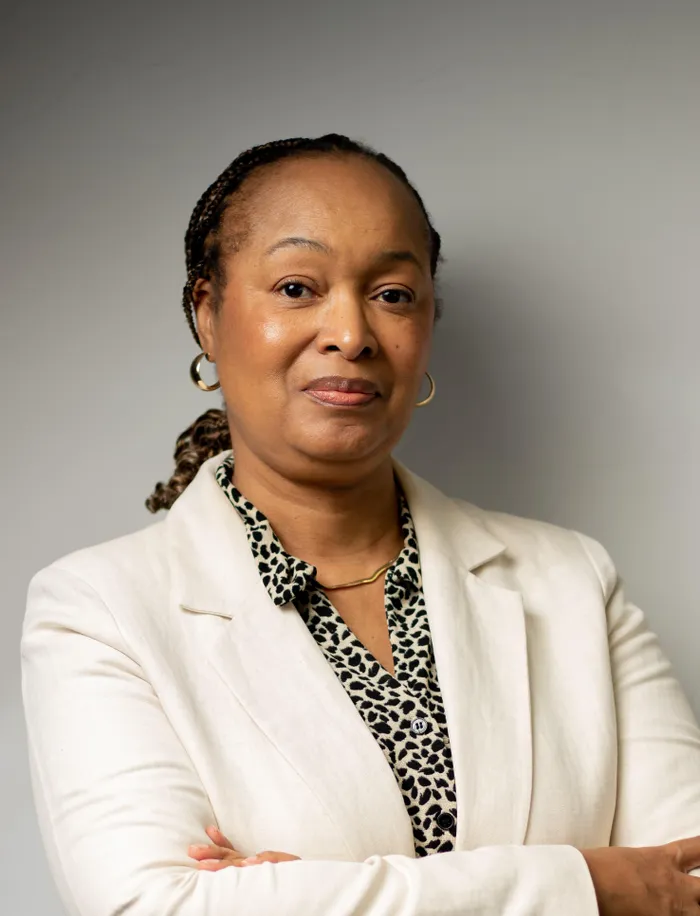From Boardrooms to Big Screens: Women Redefining Leadership

Jackie Motsepe – Chief Operations Officer and advocate for inclusive growth in tourism and film
Image: Supplied
In the global tourism and film industries, leadership has too often been framed by the male gaze. Boardrooms, budgets, and big-picture decisions have historically been the domain of men, leaving women to navigate not just career paths, but cultural expectations and systemic barriers.
Yet, in KwaZulu-Natal, two dynamic leaders are rewriting the script.
Jackie Motsepe, Chief Operations Officer of the KwaZulu-Natal Tourism and Film Authority (KZNTFA), and Mpho Mbuli, the organisation’s Head of Destination Marketing, are not simply participating in the industry-they are transforming it.
Women’s Month is not just a time to applaud individual achievement; it is a moment to interrogate the structures that shape women’s careers, celebrate the progress made, and examine the work still to be done.
In the intertwined worlds of tourism and film-industries that sell both experiences and stories-representation at the leadership table is not a nice-to-have, it’s a necessity.
Tourism and film are both storytelling enterprises. They sell narratives-whether those narratives are about a sweeping beach along the KZN coast or a gripping drama set against the province’s mountains. But who decides which stories get told?
Who determines which landscapes are showcased, which cultural moments are amplified, and which communities benefit from the economic ripple effect?
For decades, these decisions were made by men. The result was a limited worldview-one that sometimes sidelined the very voices and perspectives that could have brought greater depth, authenticity, and economic inclusion.
Motsepe and Mbuli are part of a growing cohort of women executives who are shifting that dynamic.
Motsepe’s career arc reads like a masterclass in strategic progression. Armed with a BA from Sunderland University in the United Kingdom, she fortified her leadership skills through advanced programmes at Wits Business School and the Gordon Institute of Business Science.
From her early days as Brand Manager at the SABC to her tenure as Head of Marketing and Public Affairs at the National Film and Video Foundation, Motsepe has built a career at the intersection of creativity and commerce.
“When women are at the table, we don’t just change the conversation-we often change the outcomes,” Motsepe reflected.
“We are deeply aware of the social and economic ecosystems that tourism and film touch. For us, success isn’t just measured in visitor numbers or box office returns; it’s measured in how communities are uplifted and how our culture is portrayed,” she said.
One of the unspoken truths of corporate leadership is that the boardroom is never a neutral space. Power dynamics, networking cultures, and informal decision-making channels can all disadvantage women-particularly in male-dominated sectors. For women in tourism and film, where leadership requires both creative vision and commercial acumen, the challenge is even sharper.

Marketing Manager specialising in destination marketing and branding KwaZulu-Natal to the world.
Image: Supplied
Mbuli knows this reality well. With over two decades in marketing, including high-profile roles at British Airways, Nedbank, and eThekwini Municipality, she has navigated rooms where she was often the only woman-and sometimes the youngest voice.
She said: “Tourism marketing is not just about pretty pictures and slogans. It’s about shaping perceptions of place, attracting investment, and sustaining livelihoods. Women bring a layered understanding to this work, because we often approach leadership with both empathy and strategic foresight. That combination is powerful.”
Her tenure at KZNTFA has been marked by innovative campaigns that have elevated KwaZulu-Natal’s profile on the global stage. From forging international partnerships to amplifying the province’s cultural heritage in ways that resonate with both domestic and overseas travellers, Mbuli’s work underscores the point: representation in leadership changes not just the stories we tell, but the audiences we reach.
The argument for more women in corporate leadership is not simply moral-it is economic. McKinsey research (How Diversity, Equity, and Inclusion (DE&I) Matter”, 2019) has consistently shown that companies with diverse executive teams outperform their less diverse counterparts.
In tourism and film, the business case is even more pronounced. Women make up a substantial proportion of the global travel consumer base, and their preferences influence spending decisions in households worldwide.
Similarly, the global film audience is diverse and increasingly vocal about wanting authentic representation on screen. Leaders who understand these nuances-often because they live them-are better equipped to craft strategies that resonate.
Moreover, women leaders often champion inclusive policies, from equitable procurement practices to community-led tourism initiatives. This ensures that the benefits of tourism and film production extend beyond a narrow set of stakeholders.
In KwaZulu-Natal, where tourism is a key driver of economic growth, such inclusive strategies can have generational impacts.
There is also a deeper cultural significance to women leading in tourism and film. In many ways, these industries are the mirrors in which a society sees itself. When women hold leadership roles, they can challenge reductive stereotypes and ensure that a wider spectrum of stories-and storytellers-are brought into the fold.
For Motsepe, this means thinking beyond immediate economic returns. “We have a responsibility to safeguard the integrity of our narratives,” she said.
“Tourism and film are not just about what people see-they are about what they remember and how they feel about who we are as a people.”
Mbuli echoed this sentiment, and noted that the stakes were particularly high for regions like KwaZulu-Natal, which boasted both rich cultural heritage and complex historical narratives.
“If we don’t lead the storytelling, someone else will-and they may not get it right,” she warned.
Both women are also committed to paving the way for future leaders. They know that their presence in executive roles is both a personal achievement and a public statement: young women in KwaZulu-Natal can-and should-aspire to such positions.
Mentorship, they argue, was a critical part of this work. Whether through formal programmes or informal guidance, they are investing in the next generation of women leaders. This is not just about filling a pipeline of talent; it is about creating a culture in which women’s leadership is normalised, respected, and sought after.
While August offers a symbolic moment to reflect on women’s contributions, Motsepe and Mbuli are clear that the work cannot be confined to a single month. Structural change requires sustained commitment-from corporate policies that ensure pay equity to industry-wide initiatives that hold organisations accountable for diversity in leadership.
For the tourism and film sectors, this also means reimagining how success is defined. It’s not enough to chase visitor numbers or production deals; success must also be measured in terms of social impact, community benefit, and cultural authenticity.
Ultimately, what Motsepe and Mbuli embody is a leadership style that is both strategic and human-centred. They prove that you can drive profitability without sacrificing inclusivity, that you can market a destination without commodifying its culture, and that you can lead with authority without replicating the power imbalances of the past.
In doing so, they challenge the persistent notion that leadership must conform to a traditionally masculine mould.
Instead, they model a different kind of leadership-one that sees the big picture without losing sight of the people at its heart.
As the tourism and film industries in KwaZulu-Natal look to a post-pandemic future, leaders like Motsepe and Mbuli are ensuring that the story is one of shared prosperity, authentic representation, and unflinching commitment to excellence.
Women’s Month may put them in the spotlight-but their impact will resonate long after the cameras stop rolling.
DAILY NEWS
Related Topics: